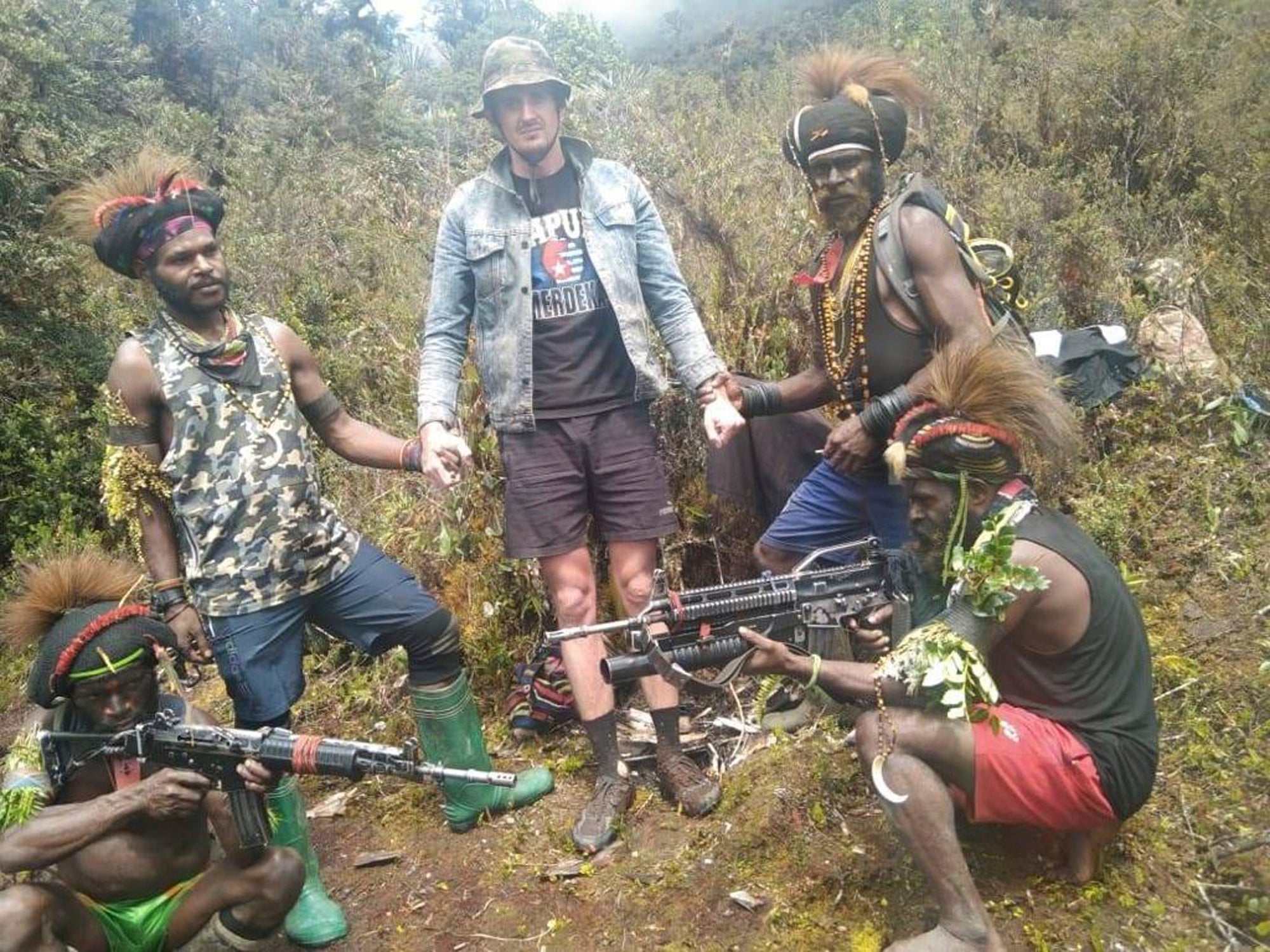Kidnapped NZ pilot: Indonesian army attacks put him at risk
Separatist rebels in Indonesia’s restive Papua region have released a video appearing to show the New Zealand pilot they took hostage in February saying that recent Indonesian military attacks threatened his safety

Your support helps us to tell the story
From reproductive rights to climate change to Big Tech, The Independent is on the ground when the story is developing. Whether it's investigating the financials of Elon Musk's pro-Trump PAC or producing our latest documentary, 'The A Word', which shines a light on the American women fighting for reproductive rights, we know how important it is to parse out the facts from the messaging.
At such a critical moment in US history, we need reporters on the ground. Your donation allows us to keep sending journalists to speak to both sides of the story.
The Independent is trusted by Americans across the entire political spectrum. And unlike many other quality news outlets, we choose not to lock Americans out of our reporting and analysis with paywalls. We believe quality journalism should be available to everyone, paid for by those who can afford it.
Your support makes all the difference.Separatist rebels in Indonesia’s restive Papua region released a video Wednesday appearing to show the New Zealand pilot they took hostage in February saying that recent Indonesian military attacks threatened his safety.
In the video sent to media by the spokesperson of the West Papua Liberation Army, the armed wing of the Free Papua Movement, known as OPM, a man in handcuffs and a black shirt is identified as Philip Mark Mehrtens of Christchurch, a pilot for Indonesian aviation company Susi Air who was abducted by the group’s independence fighters.
Sitting on a wooden log and flanked by two men, apparently members of the group, he said in the video recorded Monday: “It's almost three months since OPM kidnapped me from Paro. As you can see, I’m still alive and I’m healthy and eating well.”
He said he has had “no problems” while living with his abductors, but lately he has been worried about military attacks launched by the Indonesian army following a deadly ambush by the rebels on April 15 that killed at least five Indonesian soldiers who were deployed to rescue him.
“Indonesia has been dropping bombs in the area over the last week,” he said. “Please, there is no need. It’s dangerous for me and everybody here.”
The five Indonesian army troops were killed after rebels attacked 36 soldiers in Nduga district in Papua Highlands province.
Rebel spokesperson Sebby Sambom said last week that his group’s fighters killed at least 15 soldiers but offered no proof to back up the statement.
Sambom said earlier the rebels carried out the attack in retaliation for Indonesia’s “massive military operation” in Papua and the killings of two rebels in a shootout with security forces last month.
Adm. Yudo Margono rejected the rebel claims and said the military operations in Papua were launched with a view to keep casualties at a minimum. However, he said that authorities will increase pressure on the rebels around several separatist strongholds, including in Nduga.
The rebels in February stormed a single-engine plane shortly after it landed on a small runway in Paro and abducted Mehrtens, the pilot. The plane initially was scheduled to pick up 15 construction workers from other Indonesian islands after the rebels threatened to kill them.
Authorities will continue to prioritize a peaceful approach for the release of Mehrtens, Margono said.
The kidnapping of the pilot was the second that independence fighters have committed since 1996, when the rebels abducted 26 members of a World Wildlife Fund research mission in Mapenduma. Two Indonesians in that group were killed by their abductors, but the remaining hostages were eventually freed within five months.
The pilot kidnapping reflects the deteriorating security situation in Indonesia’s easternmost region of Papua, a former Dutch colony in the western part of New Guinea that is ethnically and culturally distinct from much of Indonesia.
Papua was incorporated into Indonesia in 1969, after a U.N.-sponsored ballot that was widely seen as a sham. Since then, a low-level insurgency has simmered in the region, which was divided into five provinces last year to boost development in Indonesia’s poorest region.
Rebels attacks have spiked in recent years, as the government extended infrastructure and the controversial Trans-Papua Highway, a road being built into the heart of highland Papua that has inflamed resistance. Many indigenous Papuans believe the moves are a threat to their identity and traditional way of life, prompting attacks by separatist groups that have been followed by further Indonesian military deployments.
Data collected by Amnesty International Indonesia showed at least 179 civilians, 35 Indonesian troops and nine police along with 23 independence fighters were killed in clashes between rebels and security forces between 2018 and 2022.